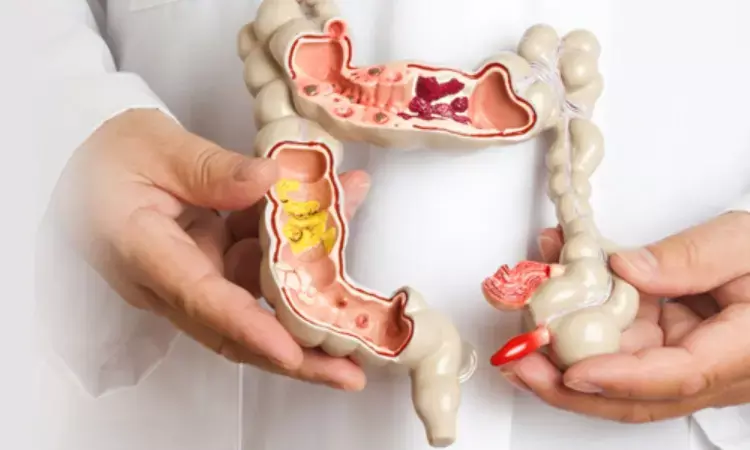- Home
- Medical news & Guidelines
- Anesthesiology
- Cardiology and CTVS
- Critical Care
- Dentistry
- Dermatology
- Diabetes and Endocrinology
- ENT
- Gastroenterology
- Medicine
- Nephrology
- Neurology
- Obstretics-Gynaecology
- Oncology
- Ophthalmology
- Orthopaedics
- Pediatrics-Neonatology
- Psychiatry
- Pulmonology
- Radiology
- Surgery
- Urology
- Laboratory Medicine
- Diet
- Nursing
- Paramedical
- Physiotherapy
- Health news
- Fact Check
- Bone Health Fact Check
- Brain Health Fact Check
- Cancer Related Fact Check
- Child Care Fact Check
- Dental and oral health fact check
- Diabetes and metabolic health fact check
- Diet and Nutrition Fact Check
- Eye and ENT Care Fact Check
- Fitness fact check
- Gut health fact check
- Heart health fact check
- Kidney health fact check
- Medical education fact check
- Men's health fact check
- Respiratory fact check
- Skin and hair care fact check
- Vaccine and Immunization fact check
- Women's health fact check
- AYUSH
- State News
- Andaman and Nicobar Islands
- Andhra Pradesh
- Arunachal Pradesh
- Assam
- Bihar
- Chandigarh
- Chattisgarh
- Dadra and Nagar Haveli
- Daman and Diu
- Delhi
- Goa
- Gujarat
- Haryana
- Himachal Pradesh
- Jammu & Kashmir
- Jharkhand
- Karnataka
- Kerala
- Ladakh
- Lakshadweep
- Madhya Pradesh
- Maharashtra
- Manipur
- Meghalaya
- Mizoram
- Nagaland
- Odisha
- Puducherry
- Punjab
- Rajasthan
- Sikkim
- Tamil Nadu
- Telangana
- Tripura
- Uttar Pradesh
- Uttrakhand
- West Bengal
- Medical Education
- Industry
Hughes' abdominal closure fails to reduce incident incisional hernia in patients with colorectal cancer

Hughes' abdominal closure does not significantly reduce the incidence of laboratory-detected incisional hernias and is more cost-effective than standard mass closure in patients with colorectal cancer, says an article published in the National Institutes of Health and Care Research.
Incisional hernias can cause chronic pain and complications and affect quality of life. Surgical repair requires medical resources and has significant failure rates associated with it. Susan O'Connell and her team therefore conducted this study to evaluate the efficacy of the Hughes abdominal closure compared to standard mass closure for relieving incisional hernias after colorectal cancer surgery.
In this multicenter, prospective, single-blind, randomized, controlled study, investigators evaluated the clinical efficacy of the Hughes abdominal closure technique compared with standard mass closure after surgery for colorectal cancer, as well as the cost-effectiveness of both the techniques.
In this study, 802 adult patients (18 years and older) undergoing surgical resection for colorectal cancer from 28 surgical departments of the UK Center were randomized in a 1:1 ratio. Hughes abdominal closure or standard mass closure were the main inclusion criteria for this study.
The primary endpoint was the 1-year incidence of incisional hernia as assessed by clinical evaluation. A cost-effectiveness and cost-benefit analysis were conducted over a one-year period in terms of NHS and social care. The key secondary endpoint was quality of life, and additional endpoints included the incidence of incisional hernias detected by computed tomography scans.
The main results of this study were:
1. The incidence of incisional hernia at his first year of clinical evaluation was 50 (14.8%) with the Hughes open arm compared with 57 (17.1%) with the standard mass closure arm.
2. The incidence of incisional hernia at 2 years was 78 (28.7%) with the Hughes abdominal closed arm compared to 84 (31.8%) with the standard mass closure arm.
3. Computed tomography scans identified a total of 301 incisional hernias in both arms compared with 100 identified by clinical examination at 1-year follow-up.
4. Computed tomography missed 16 incisional hernias found on clinical examination.
5. The Hughes abdominal closure was found to be less cost effective than the standard bulk closure.
6. The average additional cost for patients undergoing Hughes abdominal closure was £616.45.
7. Quality of life did not differ significantly between study groups at any time point.
Computed tomography scans may be more effective than clinical examination in identifying incisional hernias, but their clinical utility requires further research, concluded the Authors.
Reference:
O'Connell, S., Islam, S., Sewell, B., Farr, A., Knight, L., Bashir, N., Harries, R., Jones, S., Cleves, A., Fegan, G., Watkins, A., & Torkington, J. (2022). Hughes abdominal closure versus standard mass closure to reduce incisional hernias following surgery for colorectal cancer: the HART RCT. In Health Technology Assessment (Vol. 26, Issue 34, pp. 1–100). National Institute for Health and Care Research (NIHR). https://doi.org/10.3310/cmwc8368
Neuroscience Masters graduate
Jacinthlyn Sylvia, a Neuroscience Master's graduate from Chennai has worked extensively in deciphering the neurobiology of cognition and motor control in aging. She also has spread-out exposure to Neurosurgery from her Bachelor’s. She is currently involved in active Neuro-Oncology research. She is an upcoming neuroscientist with a fiery passion for writing. Her news cover at Medical Dialogues feature recent discoveries and updates from the healthcare and biomedical research fields. She can be reached at editorial@medicaldialogues.in
Dr Kamal Kant Kohli-MBBS, DTCD- a chest specialist with more than 30 years of practice and a flair for writing clinical articles, Dr Kamal Kant Kohli joined Medical Dialogues as a Chief Editor of Medical News. Besides writing articles, as an editor, he proofreads and verifies all the medical content published on Medical Dialogues including those coming from journals, studies,medical conferences,guidelines etc. Email: drkohli@medicaldialogues.in. Contact no. 011-43720751


